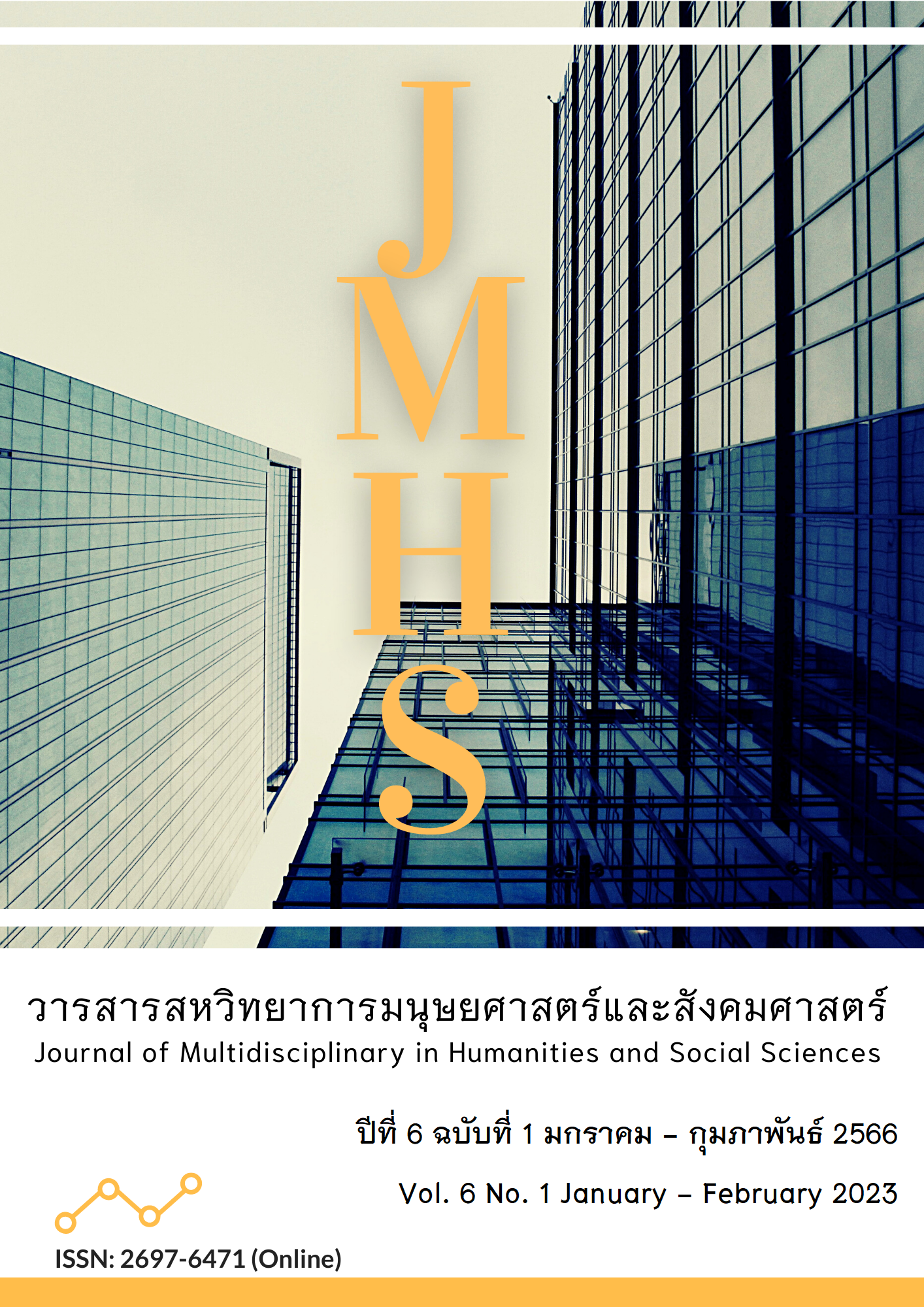The Development of a Model for Volunteer Spirit of The Lower Secondary Level Student in Opportunity Expansion School in Thailand
Main Article Content
Abstract
This article aimed to 1) develop a model of volunteering for lower secondary school students in expanding opportunities schools in Thailand; and 2) test and improve the model of volunteering for lower secondary school students in expanding opportunities schools in Thailand. The research model was research and development. The sample was 94 Inthamoleeprathan School students in Singburi Province. The research process was conducted in three steps as follows: 1) the development of a model of student volunteerism; 2) an experiment on the model of building a volunteer mind in the students; and 3) an improvement of the model of building a volunteer mind in the students. student There are two types of research tools used in this research. The data were analyzed using the mean, standard deviation, and T-test.
The research results were found as follows: 1) The student volunteering model consists of two components: an academic aspect and learner development activities. Volunteer behaviors are classified into three types: 2) Experimental results It was discovered that students' volunteer behavior in general and in the behavior category was significantly higher than before the experiment at the.05 level, and students volunteered behavior in general, academic behavior category, and student development activities. At the.05 level, the study after the trial was significantly higher than before the trial, and 3) the results of the improvement of the volunteer spirit modeling model included three topics: (1) explaining each component as a one-page diagram; (2) writing a lesson plan for volunteering activities in academics and in the aspect of student development activities. (3) The storage of data to make a link to store in the cloud or on the school's website.
Article Details

This work is licensed under a Creative Commons Attribution-NonCommercial-NoDerivatives 4.0 International License.
Views and opinions appearing in the Journal it is the responsibility of the author of the article, and does not constitute the view and responsibility of the editorial team.
References
กระทรวงศึกษาธิการ. (2553). หลักสูตรแกนกลางการศึกษาขั้นพื้นฐาน พ.ศ. 2551. (พิมพ์ครั้งที่ 3). กรุงเทพฯ: ชุมนุมสหกรณ์การเกษตรแห่งประเทศไทย.
กระทรวงศึกษาธิการ. (2560). ตัวชี้วัดและหลักสูตรแกนกลาง (ฉบับปรับปรุง พ.ศ. 2560) ตามหลักสูตรแกนกลางการศึกษาขั้นพื้นฐาน พ.ศ. 2551. กรุงเทพฯ: ชุมนุมสหกรณ์การเกษตรแห่งประเทศไทย.
กรมวิชาการ กระทรวงศึกษาธิการ. (2546). แนวทางการจัดกิจกรรมพัฒนาผู้เรียนตามหลักสูตรการศึกษาขั้นพื้นฐาน พ.ศ. 2544. กรุงเทพฯ: คุรุสภาลาดพร้าว
โกวิทย์ พวงงาม. (2554). การพัฒนาสังคมไทยวันนี้กับคุณธรรมที่หายไป. สยามรัฐสัปดาห์วิจารณ์, 54, 29.
ไพโรจน์ อักษรเสือ. (2559). รูปแบบการพัฒนาจิตสาธารณะเชิงพุทธบูรณาการสำหรับนักเรียนมัธยมศึกษาตอนต้น สำนักงานเขตพื้นที่การศึกษาประถมศึกษาขอนแก่น เขต 3. วารสารวิชาการธรรมทรรศน์, 16(2), 103-116. สืบค้นจาก https://so06.tci-thaijo.org/index.php/dhammathas/article/view/78809
ดุษฎี มัชฌิมาภิโร. (2556). การพัฒนาจิตสาธารณะสำหรับเยาวชนไทย. วารสารบัณฑิตศึกษา มหาวิทยาลัยราชภัฏสกลนคร, 10(46), 13-24. สืบค้นจาก https://so02.tci-thaijo.org/index.php/SNGSJ/article/view/10078
สำนักงานเลขาธิการสภาการศึกษากระทรวงศึกษาธิการ. (2560). แผนการศึกษาแห่งชาติ พ.ศ. 2560-2579. กรุงเทพฯ: สำนักงานเลขาธิการสภาการศึกษา.
ศูนย์คุณธรรม (องค์กรมหาชน) (2561). การส่งเสริมคุณธรรม “พอเพียง วินัย สุจริต จิตอาสา” สร้างคนดีสู่สังคม. กรุงเทพฯ: พิมพ์ดี.
สุรัตน์ ขวัญบุญจันทร์, ชนม์ชกรณ์ วรอินทร์ และ ทิวัตถ์ มณีโชติ. (2560). การพัฒนารูปแบบการประเมินคุณลักษณะอันพึงประสงค์ด้านจิตสาธารณะของนักเรียนระดับมัธยมศึกษาตอนต้น โดยประยุกต์ใช้ทฤษฎีการสรุปอ้างอิง. วารสารศึกษาศาสตร์ มหาวิทยาลัยนเรศวร, 19(1), 50-64. สืบค้นจาก https://so06.tci-thaijo.org/index.php/edujournal_nu/article/view/79073
Dewey, J. (1916). Democracy and Education: An Introduction to the Philosophy of Education. New York: MacMillan.
Kohlberg, L. (1976). Moral Stages and Moralization Moral Development and Behavior: Theory, Research and Social Issues. New York: Holt.
Maxwell, M. (1960). Psycho-cybernetic principles for creative living / Maxwell Maltz. New York: Pocket Books.


